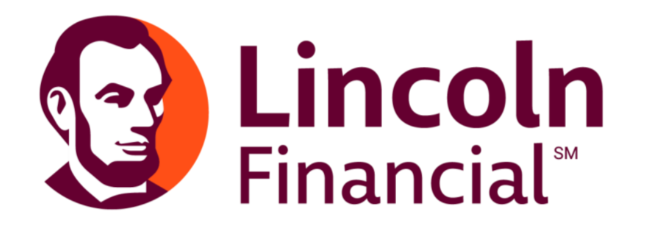On average, women pay less for life insurance than men do — even though in 2024, LIMRA reported that women were less likely than men to report having life insurance. [1] Only 46% of women reported owning life insurance, compared to 57% of men. LIMRA reports that this gap is the largest it’s been since they began tracking this data in 2011.
Gender-specific factors like pregnancy, ovarian or breast cancer, and menopause can impact life insurance premiums for women, but the reality is that women need life insurance just as much as men do.
Why women need life insurance
Women need life insurance for the same main reason as men do: To provide financial support for their loved ones.
A life insurance policy can replace your salary if your family has to live without your income — the payout can help your loved ones pay bills, cover the cost of housing, and maintain their general quality of life.
Even if you don’t earn a salary, life insurance can provide peace of mind that your family wouldn’t struggle without your household contributions.
The life insurance death benefit can be used to cover a number of different expenses, including:
A life insurance policy can cover any current or future expenses that would otherwise fall on the shoulders of your loved ones.
What factors affect the cost of life insurance for women?
“While women tend to have longer life expectancies than men, allowing for lower life insurance prices by age, they will typically face some health risks that men don't and vice versa,” says Policygenius Sales Associate Elia Weg.
"Women’s [life insurance] quotes are commonly affected by breast and reproductive cancers, hormonal disorders like PCOS, and pregnancy-related conditions like gestational diabetes, preeclampsia, and postpartum depression,” adds Weg.
Age
The cost of life insurance increases between 4.5% and 9.2% each year you delay buying a policy, so it’s worthwhile to buy coverage early. Here is what women can expect to pay at different ages for different policy amounts.
Age | Gender | $250,000 coverage amount | $500,000 coverage amount | $1 million coverage amount |
|---|---|---|---|---|
20 | Female | $15.01 | $22.65 | $33.63 |
30 | Female | $15.17 | $22.98 | $36.90 |
40 | Female | $21.66 | $35.27 | $60.65 |
50 | Female | $43.92 | $78.29 | $139.50 |
Methodology: Average monthly rates are calculated for female non-smokers in a Preferred health classification obtaining a 20-year $250,000, $500,000, or $1,000,000 term life insurance policy. Life insurance averages are based on a composite of policies offered by Policygenius from Brighthouse Financial, Corebridge Financial, Foresters Financial, Legal & General America, Lincoln Financial, Mutual of Omaha, Pacific Life, Protective, Prudential, Symetra, and Transamerica, and the Policygenius Life Insurance Price Index, which uses real-time data from leading life insurance companies to determine pricing trends. Rates may vary by insurer, term, coverage amount, health class, and state. Not all policies are available in all states. Rate illustration valid as of 08/01/2024.
Learn more >> Review more life insurance rates
Pregnancy
The health risks that come with pregnancy have the potential to increase your rates if you apply for life insurance while pregnant.
Applications from pregnant women in the first trimester are typically approved, but applications submitted in the third trimester are sometimes delayed until after birth due to the unpredictability of your health during this stage of pregnancy.
Side effects from pregnancy, such as weight gain, postpartum depression, and gestational diabetes can also impact your life insurance premiums. If you’ve been pregnant multiple times, health complications from previous pregnancies can also factor into your rates.
Breast cancer
Your personal and family history of breast cancer can impact your life insurance rates, alongside the rest of your medical history. Some insurers may even ask for mammograms or BRCA gene mutation test results if you’ve had them done, which determines if you have DNA mutations that increase your risk of breast cancer.
Traditional life insurance coverage is hard to acquire when going through cancer treatment. Most breast cancers are discovered in women ages 50 and older – another reason why it’s a good idea to purchase life insurance earlier. [2]
After remission, you’ll typically need to wait between one and five years to qualify for more affordable life insurance rates again, but it depends on the type and stage of cancer, as well as your insurer. If you have a history of breast cancer or another type of cancer, a Policygenius agent can help you compare quotes from multiple companies at once to find the lowest rate for your situation.
Mental health & hormonal disorders
Some mental health conditions — such as depression, anxiety, and eating disorders — are more common in women than men, according to the National Institute of Mental Health. [3]
Your mental health history factors into the rest of your health profile, and can have an impact on your premiums. However, if you’re following a treatment plan under the guidance of your doctor, you’ll typically still be able to qualify for affordable rates.
Hormonal disorders, such as premenstrual dysphoric disorder (PMDD), won’t necessarily affect life insurance rates, but the related symptoms, such as depression and anxiety, could. The side effects of treating a hormonal disorder can also affect how a life insurance application is assessed. For example, a medication used to treat endometriosis can sometimes lead to weight gain. Excessive weight gain in a short period of time could increase your premiums.
It’s best to be upfront about your medical history with the life insurance agent you’re working with, so they can match you to the best company for your specific situation. At Policygenius, we can help you compare quotes from over 10 different insurance companies for free, and give personalized recommendations based on your health history.
What type of life insurance do women need?
The best type of life insurance for you will ultimately depend on your financial situation and your budget — not your gender.
Term life insurance is one of the most straightforward and affordable types of life insurance — it’s meant to provide financial protection during the time of your life when you have the biggest expenses (for example, when you have a mortgage to pay off). Term life expires after a set number of years, which is one of the reasons it’s so affordable.
If you’re a high income earner and you have more complex financial needs (for instance — specific estate planning goals or dependents who need lifelong care), permanent life insurance might be a better fit for you. Permanent policies don’t expire, and they also come with a cash value savings component, but they’re more expensive than term life.
If you’re not sure which type of life insurance is best for you, a Policygenius expert can help walk you through your options.
Best life insurance companies for women
We used industry data, pricing from Policygenius carrier partners, and third-party ratings like A.M. Best and J.D. Power to pick the best insurers on the market. Our independent recommendations will help you get life insurance coverage with confidence.
Corebridge Financial (formerly AIG Life & Retirement) can be one of the most-friendly carriers to pregnant applicants, considering applications well past when others will want to postpone until after the birth.
Lincoln Financial offers a wide array of policies for applicants who have had stage 0 or stage 1 cancer, including breast cancer, and have been in remission at least five years. Applicants with later-stage breast cancer can be approved after they have been in remission for five to 10 years.
Prudential offers competitive rates for a number of women's health conditions, including PCOS, fibromyalgia, and depression.





